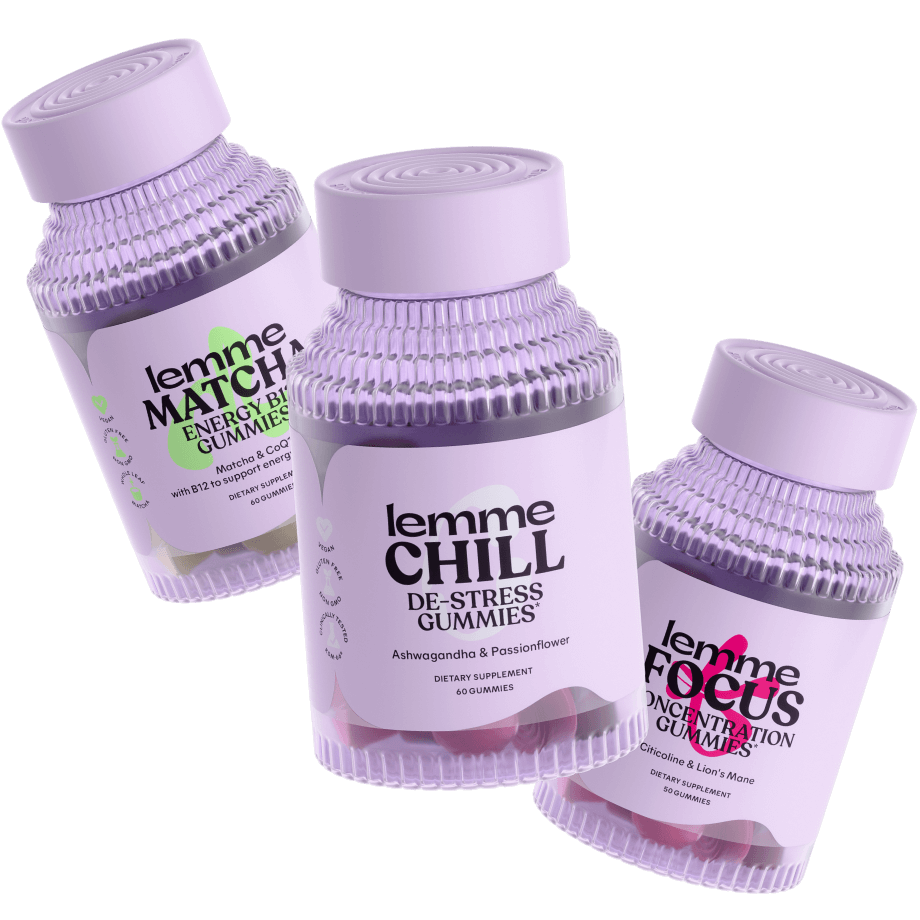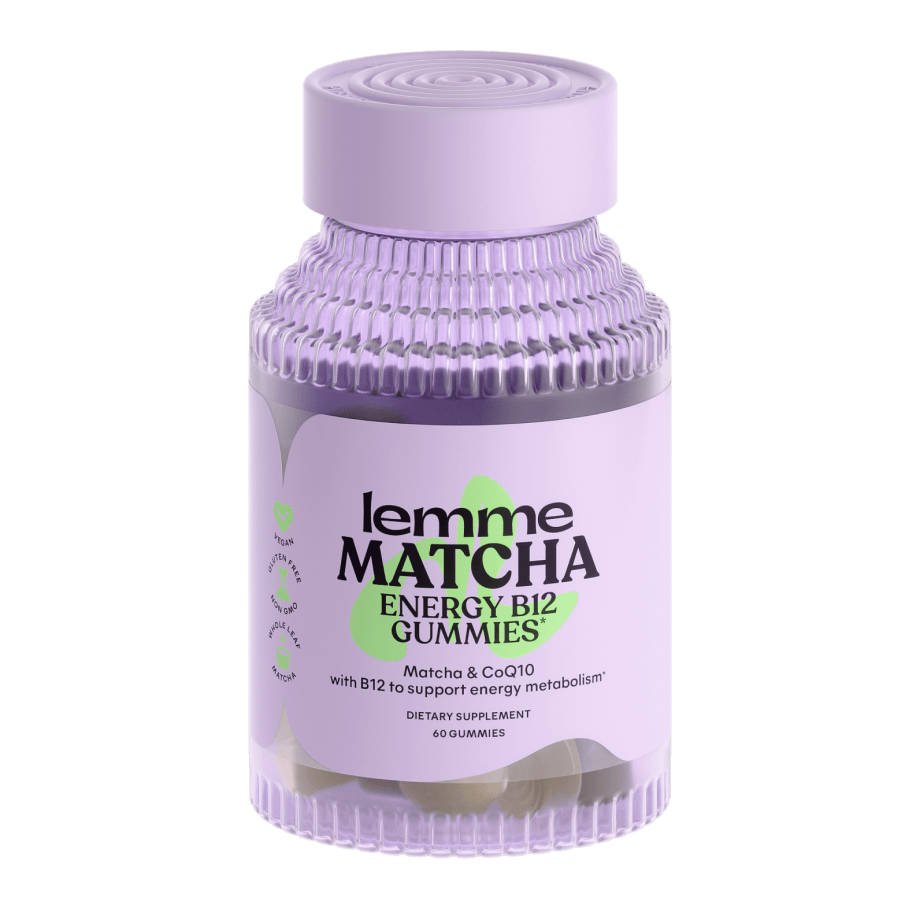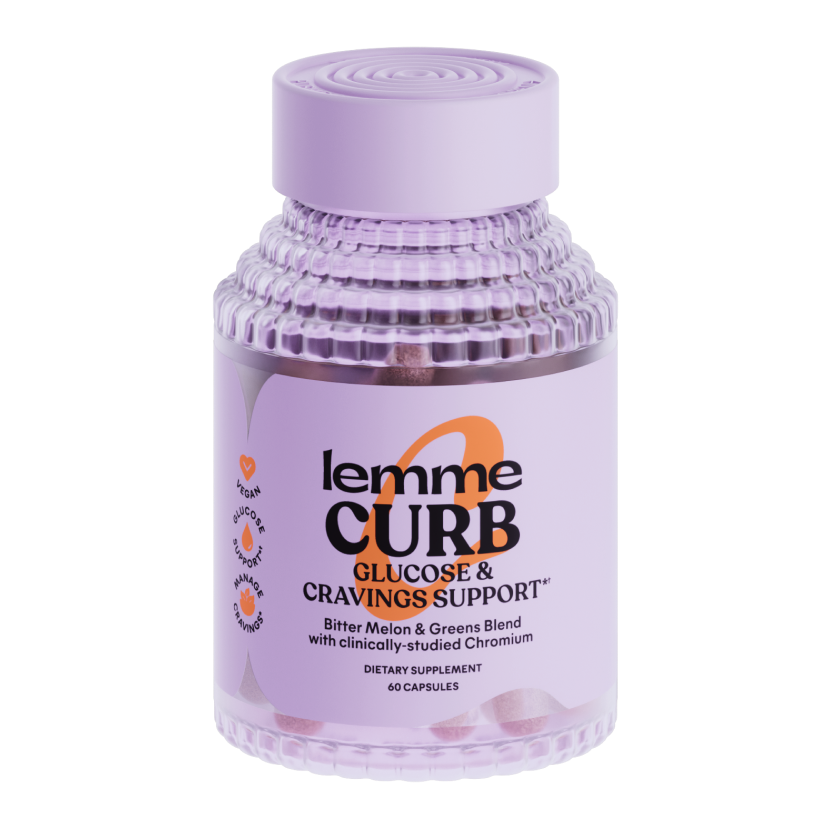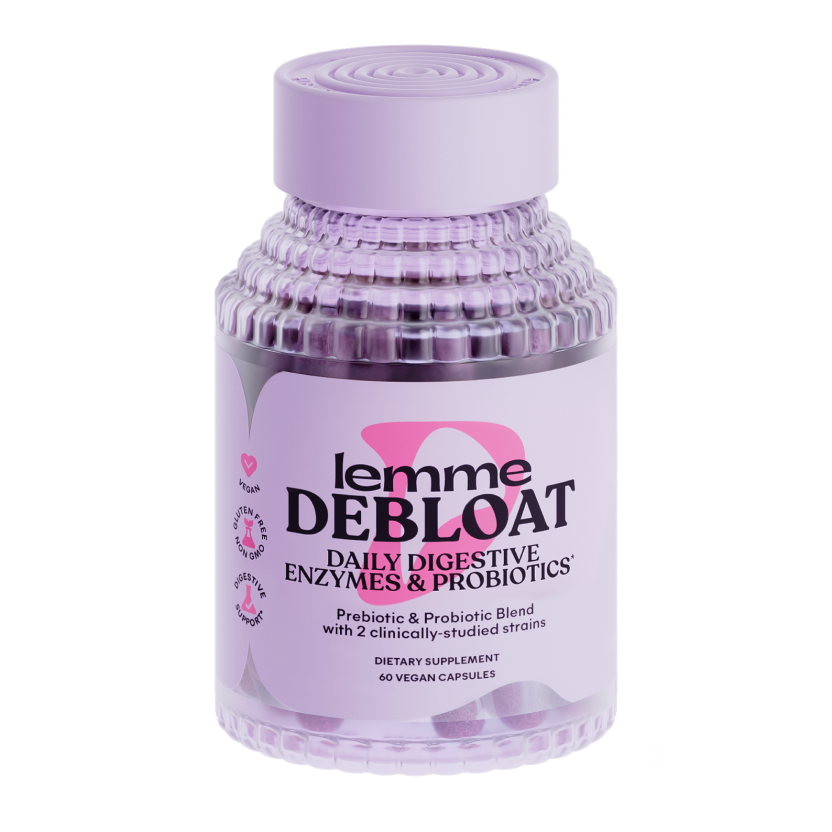
How To Improve Vaginal Health: A Complete Guide
The vagina is a dynamic female organ that plays many different roles in women's health. As a flexible muscular canal that connects the uterus to the outside of a woman's body, it has major roles during menstruation, childbirth, and sex.
As an organ, the vagina has different parts. The external part is the vulva, which comprises the clitoris, urethra, and labia. The inner part of the vagina is a soft, muscular tissue canal that connects the vulva to the cervix and the uterus.
Even a small variation in any vaginal area can greatly impact women's overall health. But how do you know if you have a healthy vagina, and what can you do to improve your vaginal health?
Today, Lemme is here to talk all about vaginal health, including factors that can affect vaginal health (good and bad), as well as the best ways you can support a healthy vagina. Read on to learn how a healthy vagina can support overall health benefits and the best ways to improve your vaginal health.
How Can I Support Vaginal Health?
Many different factors can affect vaginal health, and there are many different approaches you can take to help ensure you have a healthy vagina.
Let's explore each of these in more detail below.
1. Stay Hydrated
Hydration is very important when it comes to maintaining your overall health, including your vaginal health. Hydration can help boost your energy levels and increase circulation to your organs, including your vagina.
Better blood flow to your vagina is beneficial for sex, as it can help you feel more aroused and achieve better orgasms.
Hydration can also help moisturize your skin. When you are dehydrated, you might experience vaginal irritation, itchiness, and pain, because the lack of water can cause vaginal dryness.
2. Get Your Vitamin C
Vitamin C is an essential micronutrient that can help support your wellness by keeping your body balanced and maintaining immune system health. This nutrient may also help support a healthy vaginal pH.
Vitamin C also has powerful antioxidant properties that can support the health of cells throughout your body.
3. Take Probiotics
Probiotics, which are living microorganisms, can help support vaginal health to keep your body balanced.
Your vagina is naturally acidic, and the low pH environment helps kill bad bacteria and keep good bacteria alive to lower your risk for vaginal infection. Two main factors play a key role in maintaining a proper vaginal pH level — your vaginal microbiome and estrogen levels.
Probiotics, particularly the bacteria Lactobacilli, work to support and build onto the ecosystem of beneficial bacteria in your vagina. Estrogen, on the other hand, can help Lactobacilli flourish to further promote a healthy environment.
You can consume probiotics in fermented foods like sauerkraut or yogurt. However, you can also consume probiotics as supplements to support vaginal health. When taking probiotic supplements, make sure you choose a clinically studied option for the best support.
4. Practice Safe Sex
Maintaining proper sexual health can, in turn, help maintain your vaginal health. If you have an active sex life, it is important that you use protection, get tested for sexually transmitted infections (STIs), and engage with body-safe sex toys.
When it comes to protection, if you use condoms as birth control, make sure you check the label first. It can generally be beneficial to avoid condom brands that contain spermicides, as these can kill beneficial vaginal bacteria that contribute to a healthy vaginal pH.
To avoid vaginal dryness after sex, use lube. Lubricants are also a great way to maintain a fun sex life and reduce irritation or tearing that can happen during sex. However, you should also make sure you check your lube ingredients — ingredients such as petroleum and glycerin can alter your vaginal pH or even cause excess bacterial growth.
5. Wear Breathable Fabrics
Your lungs are not the only organ that needs to breathe in your body — your vagina also needs to breathe!
It is important that you wear breathable fabrics, such as cotton underwear, which is also moisture-wicking. That way, your vagina can get some air, which can help reduce your risk of rashes, irritation, or infection.
At nighttime, you may even want to sleep without any underwear to let in more air.
You should also make sure that you change out of wet clothes as soon as you can, especially after exercising.
6. Visit Your Doc for Preventive Care
Even if you are not experiencing problems with your vaginal health, you should still visit your feminine healthcare provider, i.e. your OB/GYN, regularly for preventative care.
It is important that you stay up to date on gynecology screenings so that your healthcare provider can determine if there are issues with your vaginal health that you might not notice.
If you notice any changes in your vagina, including lumps, a change in vaginal discharge color or amount, vaginal odor, itchiness, dryness, or irritation, as well as irregular vaginal bleeding, consult your gynecologist. Your doctor may order further screenings or recommend at-home treatments such as pelvic floor exercises.
7. Choose Your Feminine Hygiene Products Mindfully
When it comes to feminine hygiene products, less fragrance can do more for your vaginal health in the long run.
If possible, try to avoid scented pads or tampons during menstruation — fragrance often means that there are synthetic, chemical ingredients, which can adversely affect your vaginal pH and microbiome balance.
8. Maintain a Balanced Diet
A well-balanced diet helps promote optimal physical and mental health, and better overall health can help promote a healthier vagina. A well-balanced diet can also enhance your immune system, which may help reduce your risk for vaginal infections.
Make sure that you maintain a diet rich in fruits and vegetables, whole grains, lean proteins, nuts, and seeds. Additionally, certain foods, such as cranberries, are particularly beneficial to your vaginal health. Cranberry is an antioxidant-rich food packed with nutrients that can help support your body against infection-causing bacteria.
9. Minimize Caffeine Intake
Try to limit your caffeine intake, as excess consumption can affect your vaginal pH. Caffeine may also lead to dehydration, which can, in turn, lead to vaginal dryness. If you do choose to drink coffee, make sure to drink plenty of water along with it to stay hydrated.
10. Avoid Douching
Douching, which is a term for a specific type of cleaning that basically involves rinsing and cleansing the inside of your vagina, is not necessary — your vagina is a self-cleaning organ. The white or clear discharge you may often notice in your vaginal area is a healthy sign that your vagina is cleaning itself.
When you wash the inside of your vagina, you may wash away some of the beneficial bacteria that line this muscular tract, which can make you more susceptible to vaginal infections and can also cause irritation and redness.
When washing your body, make sure that you only clean your vulva, i.e. the outside or external area of your vagina. Furthermore, only use water and gentle, fragrance-free soap in this area to avoid upsetting your vaginal pH balance.
The Bottom Line
The vagina is an important organ that plays major roles in menstruation, sex, and female reproduction. A healthy vagina helps promote overall women’s health, but many different factors can alter your vaginal health and affect your overall wellness.
Fortunately, there are easy steps you can take to support your vaginal health. These steps include staying hydrated, taking probiotics, practicing safe sex, and staying up to date on your routine OB/GYN visits.
You should also choose your feminine hygiene products mindfully, maintain a balanced diet, reduce your caffeine consumption, and refrain from douching.
If you practice these steps, you can help support a healthy vagina to promote your overall health and wellness and feel your best self.
Check out our blog for more info on how to support your wellness, from gut health to stress management to nutrients and more!
Sources:
Functional Anatomy of the Human Vagina | Academia
Vitamin C and Immune Function | Nutrients
Vaginal douching and adverse health effects: a meta-analysis. | AJPH | Vol. 87 Issue 7








